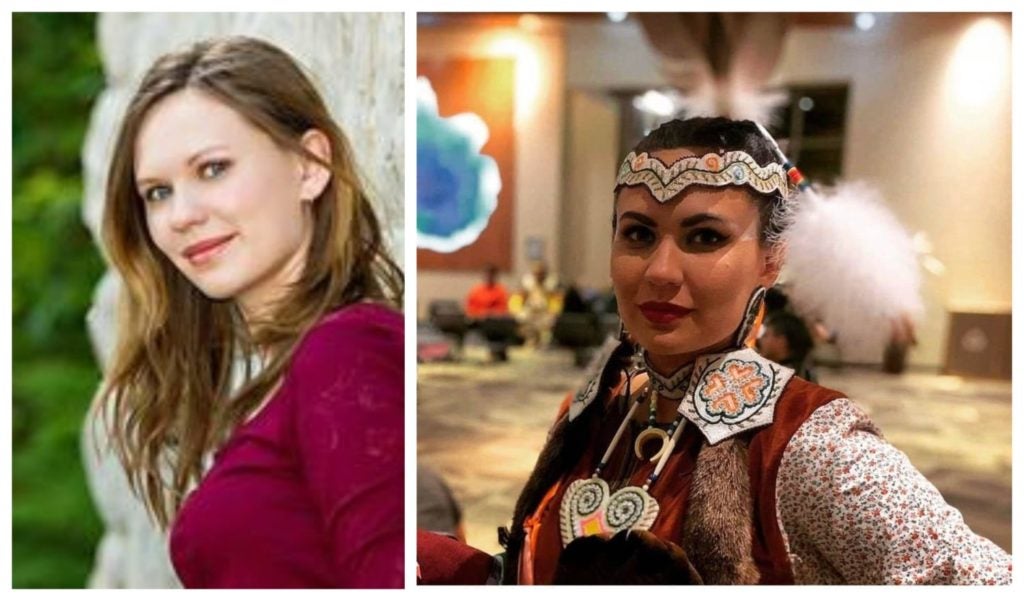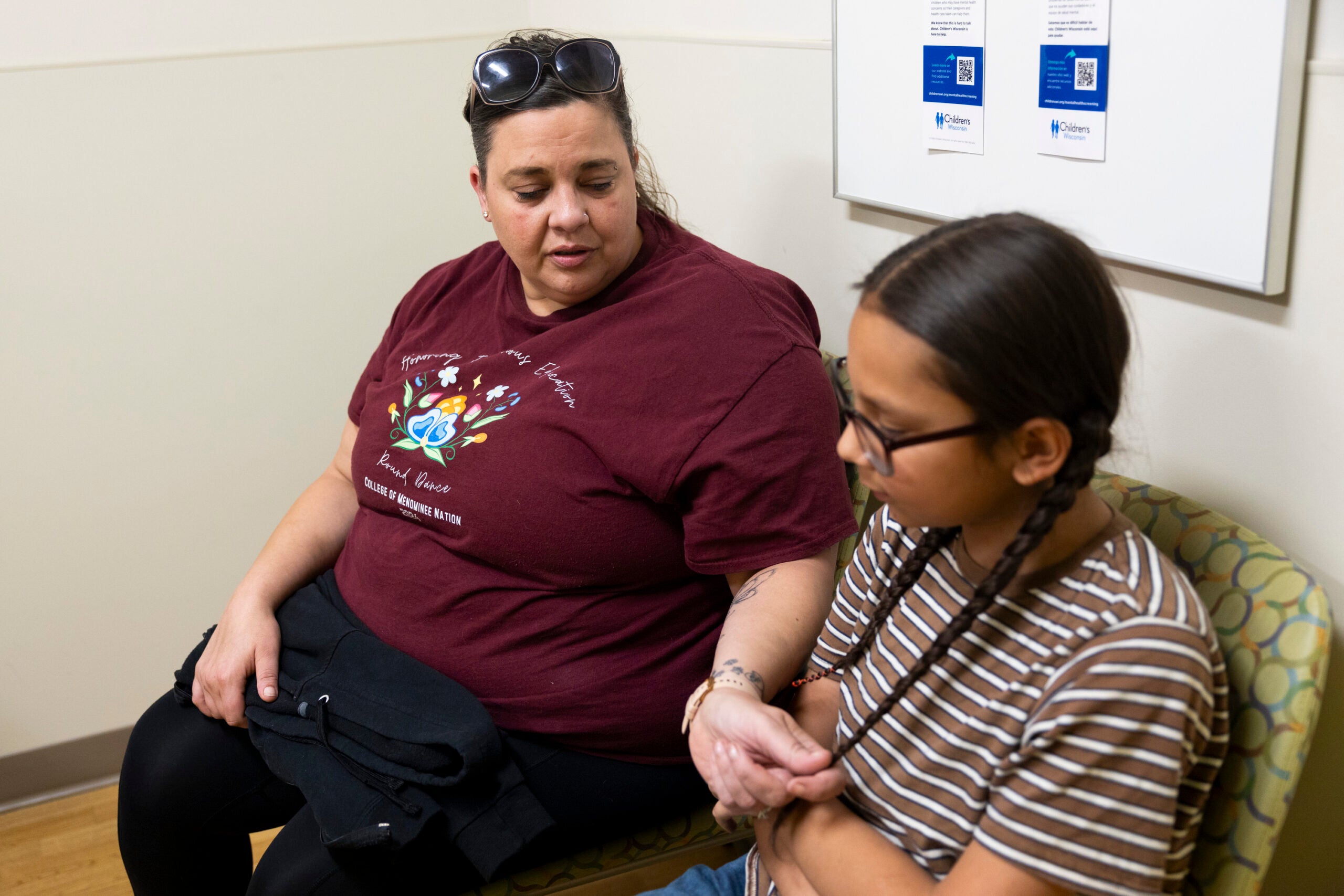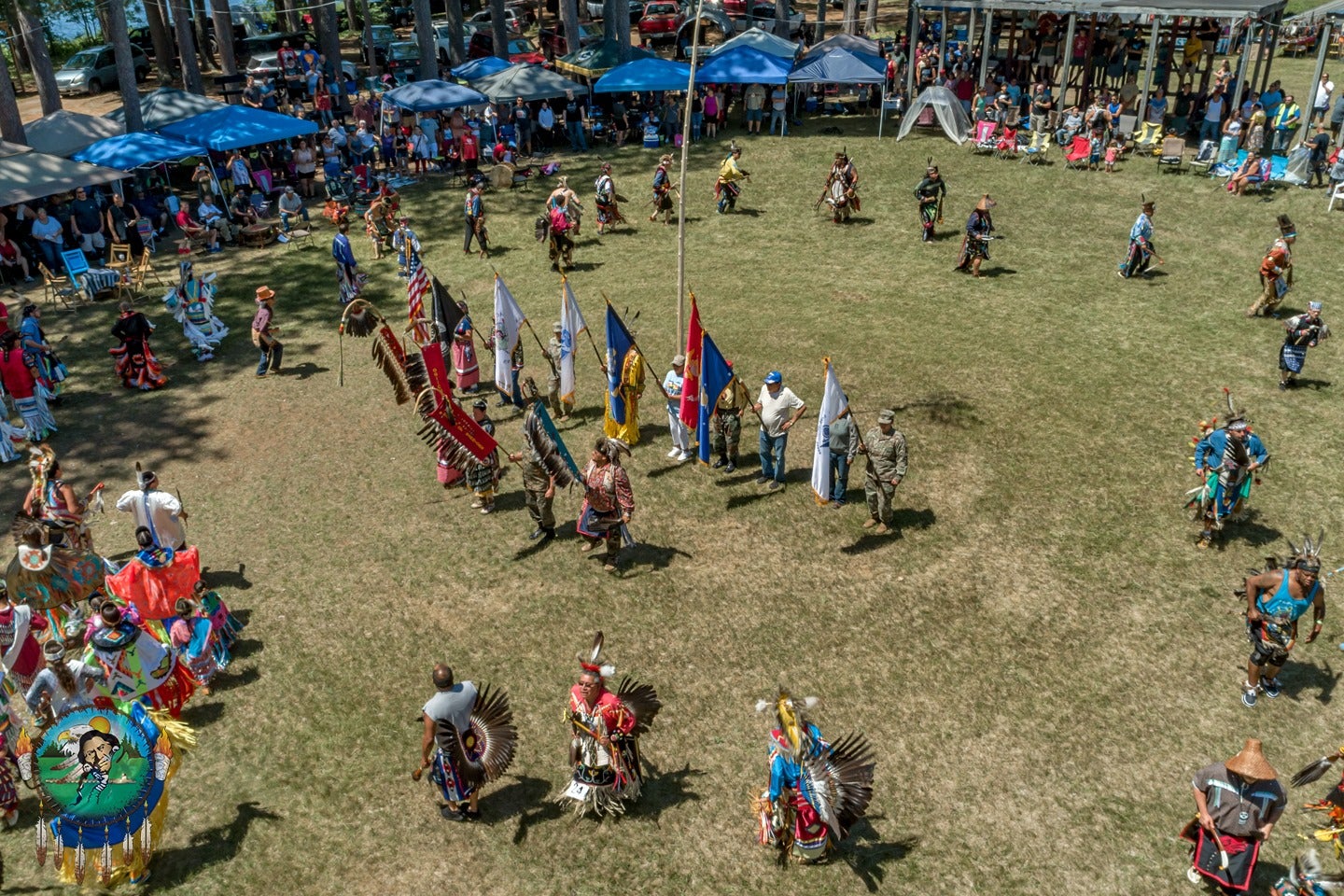Madison artist and activist Kay LeClaire, who took on an Ojibwe spirit name, is facing allegations for posing as Native American.
Since at least 2017, LeClaire has claimed multiple identities including Native identities. They also took on the Ojibwe name nibiiwakamigkwe. LeClaire uses they/them pronouns and identifies as “two-spirit,” an Indigenous term which refers to people who are nonbinary.
Many say LeClaire took pride in their heritage. They served on the state Department of Justice’s Missing and Murdered Indigenous Women Task Force, earned speaking gigs and had a paid residency at the University of Wisconsin-Madison.
News with a little more humanity
WPR’s “Wisconsin Today” newsletter keeps you connected to the state you love without feeling overwhelmed. No paywall. No agenda. No corporate filter.
But in late November, an anonymous user disputed LeClaire’s heritage claims on a New Age Frauds forum, accusing the artist of being white.
Since the news of LeClaire’s identity broke in Madison365, members of Wisconsin’s tribes and allies have spoken out.
Shannon Holsey is the president of the Stockbridge-Munsee Band of Mohican Indians. She said claiming to be Indigenous goes beyond race, and gets into issues of federal rights and tribal treaties.
“We have to really look more deeply and examine some of those motives of why one would want to do that,” she said. “Especially because it’s not just the fact that it’s associated with race, being Native American, as a member of a federally-recognized tribe.”
Bear Cunningham is the co-founder and co-owner of giige, a queer and Native American owned tattoo shop and artist collective. Cunningham worked with LeClaire at the shop before parting ways in late December.
“It makes me sad. It makes me angry … They were really good at having a really long explanation or story behind everything that they shared, everything that they claimed to have created,” Cunningham said.
Sami Schalk, a UW-Madison associate professor of gender and women’s studies, called the news “deeply disappointing.”
“It just makes no sense to me why someone would do it,” Schalk, who identifies as Black, said. “Because there’s so many ways to be an ally to a community and be very involved in creating change for a community that you believe in, to be a part of a community without claiming something that you’re not.”
In 2019, LeClaire wrote a column in “Our Lives Wisconsin” magazine called “Dear Queer White People,” which Schalk said was intended to address issues of racism within the queer community. LeClaire and Schalk connected on social media as Schalk offered writing advice.
She said LeClaire opened all of their conversations using a greeting in an Indigenous language.
“It just seemed like someone who was embracing their culture,” Schalk said.
Around the same time, LeClaire was leading a campaign encouraging a white-owned music venue, formerly The Winnebago, to change its name. It’s now called The Burr Oak.
In 2022, LeClaire became the first “community leader in residence” at UW-Madison’s School of Human Ecology and its Center for Design and Material Culture. They worked with faculty and students between March and December, receiving nearly $5,000 in private gift and grant funding, the university said in a statement Wednesday.
LeClaire “voluntarily resigned” on Dec. 29, two days before the position was slated to end, according to the university.
“There is a long and painful history of erasure and cultural appropriation in the U.S., which has had an immense impact on the lives of Indigenous people. These latest allegations are a disturbing reminder of how this persists today,” the university said, adding it doesn’t plan to work with LeClaire in the future.
As for LeClaire’s role on the DOJ’s task force, a spokesperson said their involvement “was limited to attending a few subcommittee meetings as any member of the public can.”
Ryan Greendeer, the public relations officer for the Ho-Chunk Nations Legislature, met LeClaire at a snow snake demonstration years ago. But even from his first interaction, he said he’s harbored suspicions about their identity.
He said Madison is home to a close community of members of the Ho-Chunk Nation and that veterans and elders in particular are treated with deference. Greendeer described LeClaire as interruptive,”trying to present themselves as more knowledgeable than the elder.”
Holsey, with the Stockbridge-Munsee, said there are ongoing national conversations about what constitutes extreme forms of cultural appropriation, and that in this case, it can be referred to as “ethnic fraud or race shifting.”
“Understanding what makes a person Indigenous is really … complex,” she said. “There’s obviously sources of indigeneity such as kinship and receiving cultural teachings from elders and in knowledge keepers, but those are established at birth, and strengthened throughout an Indigenous person’s life.”
LeClaire has not confirmed or denied the allegations, but told Wisconsin Public Radio they would stop using an Ojibwe name and that culturally-related items will be given back to the community.
“What I can do now is offer change,” LeClaire said in an email to WPR. “Moving forward, my efforts will be towards reducing harm by following the directions provided by Native community members and community-specified proxies.”
People of color worry about trust, call for community accountability and support
Schalk of UW-Madison said she feels conflicted because mixed-race and light-skinned people of color shouldn’t have to prove their identities.
“I don’t want us to move to a place where we have to police so heavily our spaces,” she said. “It just puts a lot of the labor and onus onto people of color to spend all this time policing spaces rather than creating and enjoying our spaces and being in community.”
Greendeer said it’s crucial for community members and organizations to support tribes, Indigenous people and those “that want to maintain the traditions and culture of their respective tribe.”
“We still need to trust those people that do come forward and that do have a link to their tribe, whether it be in gene only,” he continued.
Cunningham, the co-founder of the art collective, stressed that white people need to look inward.
“How can me, as a white person, help support the community that’s been directly harmed by another white person? And how can I continue this conversation? Because it’s not an Indigenous issue. This is a white issue,” Cunningham said.
Schalk agreed the burden shouldn’t be on people of color. She also said LeClaire should “pay back every single penny that they received for any grant, any award, anything they got while pretending to be an Indigenous person,” in addition to direct apologies to those they deceived.
In addition to LeClaire, Shalk said others should be held accountable, such as those who grew up with and knew them as white.
“I don’t believe that no one else knew,” Schalk said. “I think it should go back to the people that also supported and allowed for this deception to continue for so long.”
Holsey said she hopes this incident broadens people’s understanding of the challenges Native Americans face and continues the discussion of identity and race.
“I would hope that it serves, respectfully, as an educational tool,” Holsey said. “I think it’s critically important for everyone to know where they descend from their ancestors, and the information and the significant ties to the culture, language and traditions, because then it … will broaden the perspective of why we are the way that we are.”
Wisconsin Public Radio, © Copyright 2025, Board of Regents of the University of Wisconsin System and Wisconsin Educational Communications Board.




